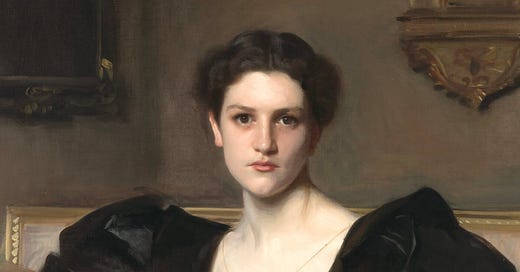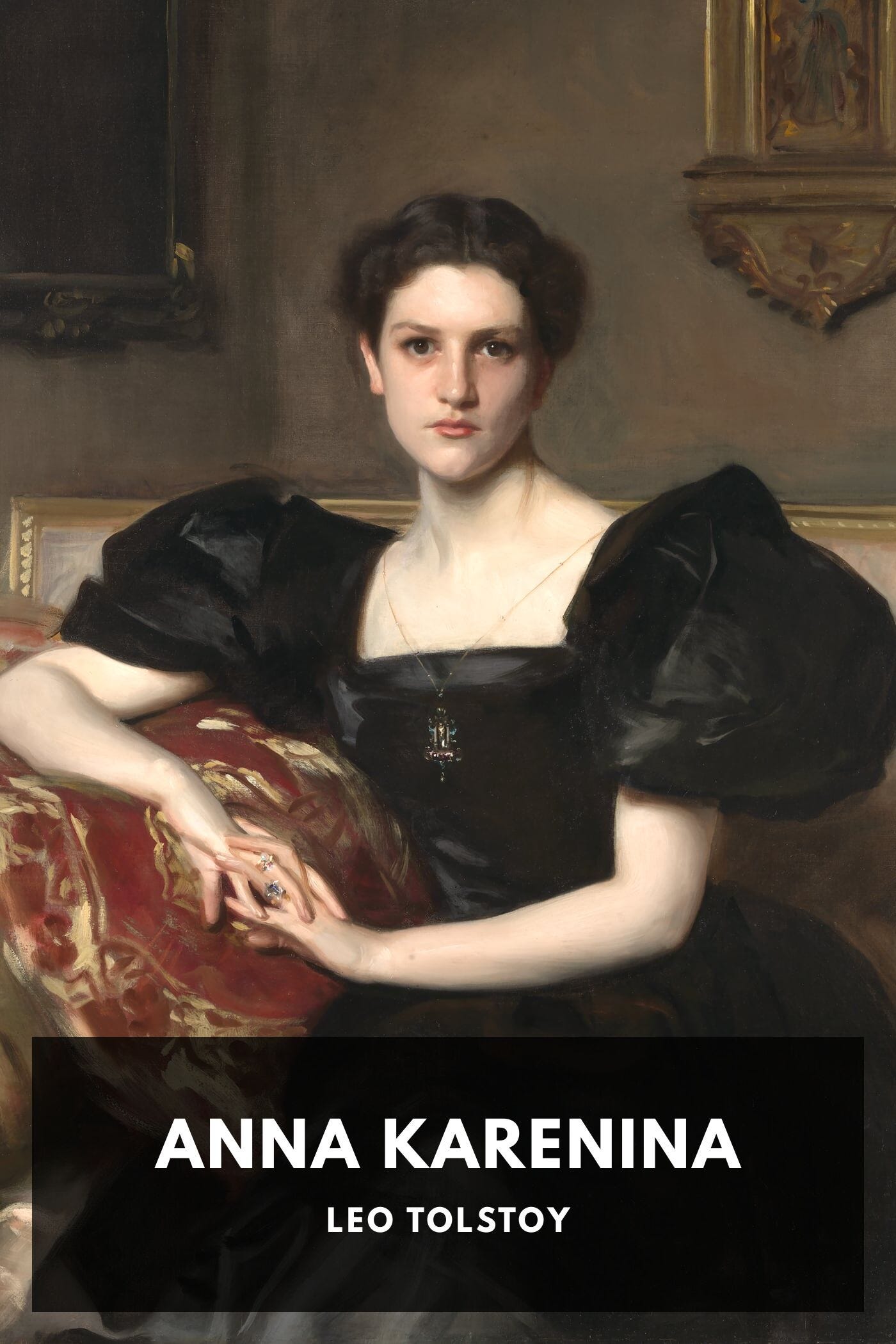I spent the last few months reading Anna Karenina, and it made me think a lot about endings, and how knowing and anticipating a story’s ending impacts the reader’s experience. I wrote a thing about it to share with you, below.
But first! A couple of bits of news:
Back in January, I wrote about John Singer Sargent’s portraits, and how they helped me think about how to write about real people. I mentioned at the time that the Sargent essay grew out of my attempts to write a craft essay for Writer’s Digest, and promised to share that piece if it ever made it online… well, here it is!
This act of translation (and all of its interpersonal fallout) is something I’ve spent a lot of time thinking and writing about—in addition to the Museum Pages essay on Sargent and this one for Writer’s Digest, I have another essay in the works (details TBD) about when you should let people in your life read your memoir before it’s published. With this topic so actively on my mind lately, this felt like a good time to launch another session of my one-day course, Telling Shared Stories: Writing About Other People in Memoir.
This class is not about me preaching and telling you what I think you should do—it’s designed to help writers think through complicated issues like power dynamics of storytelling, and what you owe to whom, and which stories are yours to tell, to come up with your own set of rules for writing about real people in your life. The last few sessions have been really thought-provoking and special. Join me for the next one on Sunday, July 21!
And lastly, First Love comes out ONE WEEK from today! Ahh!! I can’t believe it’s so close. Please consider preordering if you haven’t already—preorders really can make or break a new book, and I want this one to have a long and fabulous life.
And if you’re planning to come to the launch at Books Are Magic in Brooklyn next Monday, May 6 (where I’ll be in conversation with Leslie Jamison!!), make sure to get tickets in advance.
And finally: Anna! And 150-year-old spoilers.
First, just to get it out of the way up top: Yes, Leo Tolstoy was a genius. He has a way of describing characters unlike anyone else—so precisely and mercilessly articulating both how they see themselves and the much less flattering truth below the surface in deft strokes that made me cringe in sympathy for these characters as they were exposed so brutally, just completely naked in their self-delusion and striving. Genuinely awe-inspiring and incredible, and often quite funny despite the fact that everything is going horribly for everyone pretty much all of the time.
But mostly I want to talk about the famous ending of this famous book. In case you’re not aware: Anna throws herself under a train. I knew this before I picked up the book—it’s maybe the most famous suicide in literature. But you can’t be mad about spoilers from 150 years ago, so instead of wishing I didn’t know how it was going to end, I spent a lot of time paying attention to how knowing the ending impacted my experience of the story.
As Anna’s emotional state roved from racked with guilt to blissfully in love to tortured to hopeful to despairing, the ending often loomed in the periphery. In the scene where we first meet Anna—at a train station—I made a note of the fact that I wouldn’t have been able to appreciate that little wink and nod of symmetry if I didn’t know that we were going to end up in another train station some 700 pages later. But sometimes I pretended I didn’t know—I imagined what it would be like to read this novel with a real hope that maybe those crazy kids could make it work. Maybe Karenin would grant Anna a divorce, and she and Vronsky would get married and live happily ever after, visiting with Dolly and Stiva every summer in the countryside. And, in what I believe is a mark of a great tragedy, I was able to genuinely hope for this ending while reading, even though I knew it wasn’t gonna happen.
I remember the first time I noticed that feeling—reading a story that you know has a tragic ending, but being so swept up in it that you still hope with all your might that somehow it will end differently this time. (The story was Romeo and Juliet, and I was sixteen, so just peak Big Feelings all around.) That deeply felt wish for a different ending made a real impression on me, and it’s something I’ve thought about a lot in my own writing. I thought about it a ton while writing Negative Space—I made the decision to start that story with my father’s death, and understood that decision to mean that my task as a writer was to make readers hope for him to survive, even though I already told them that he wouldn’t. I wanted to make readers want a different ending to that story as badly as I do.
So, for hundreds of pages of Anna Karenina, I was mulling over these ideas about tragedy and inevitability and hope against hope. As I got close to the end, when Anna was truly In a State, and she arrived at a train station, I put the book down for a few days. I gave myself a few more days in which maybe she would just get on the damn train and arrive at Vronsky’s mother’s house and she would cry about how much she had given up to be with him and he would say something that would make her finally trust in his love enough to stop freaking the fuck out like she had been for the last hundred pages or so.
And then I picked it back up, and I read the ending I knew was coming. And it wrecked me.
But then… there were still 50 pages left!
After Anna dies, we get a little bit of Vronsky being a broken shell of a man, but mostly the rest of the book is about Levin. Fuckin Levin. Ok this is why I made sure to say right at the beginning that Tolstoy was a genius, because I really struggled with this whole secondary storyline about Levin—I just did not care at all about this guy’s opinions about the shifting political landscape of farming in Russia. I’m sorry! Maybe it would have been more compelling in 1878 when these issues were currently being debated (and when it was commonplace for authors to shoehorn all of their political beliefs into novels via longwinded pontification by characters. This is seen as gauche now, but it wasn’t always.)
But after the intensity of the Anna/Vronsky story and finally reaching the ending that I had been contemplating and anticipating for the whole book, to then switch back to Levin and his thoughts about God and the greater good felt so deflating. I actually said out loud “I can’t believe I read all of that just to get to this fucking guy finding religion!”
So, ultimately, famous suicide and all, the ending of Anna Karenina still managed to surprise me. Just not in a good way. Whaddaya know.







It’s famous in my marriage that I spoiled Anna Karenina for my husband by mentioning the ending. I thought “everyone” knew! Oh well.
I appreciate this thoughtful take on how that affects our reading though. I remember thinking about this problem when watching Philippe Petit in Man on Wire— we know he made it! There he is on screen, being interviewed about it, but *still* there’s so much suspense and drama in the how. That’s masterful story telling— when you can make people care anyway, as you say here.
I just pre-ordered First Love. Looking forward to it!